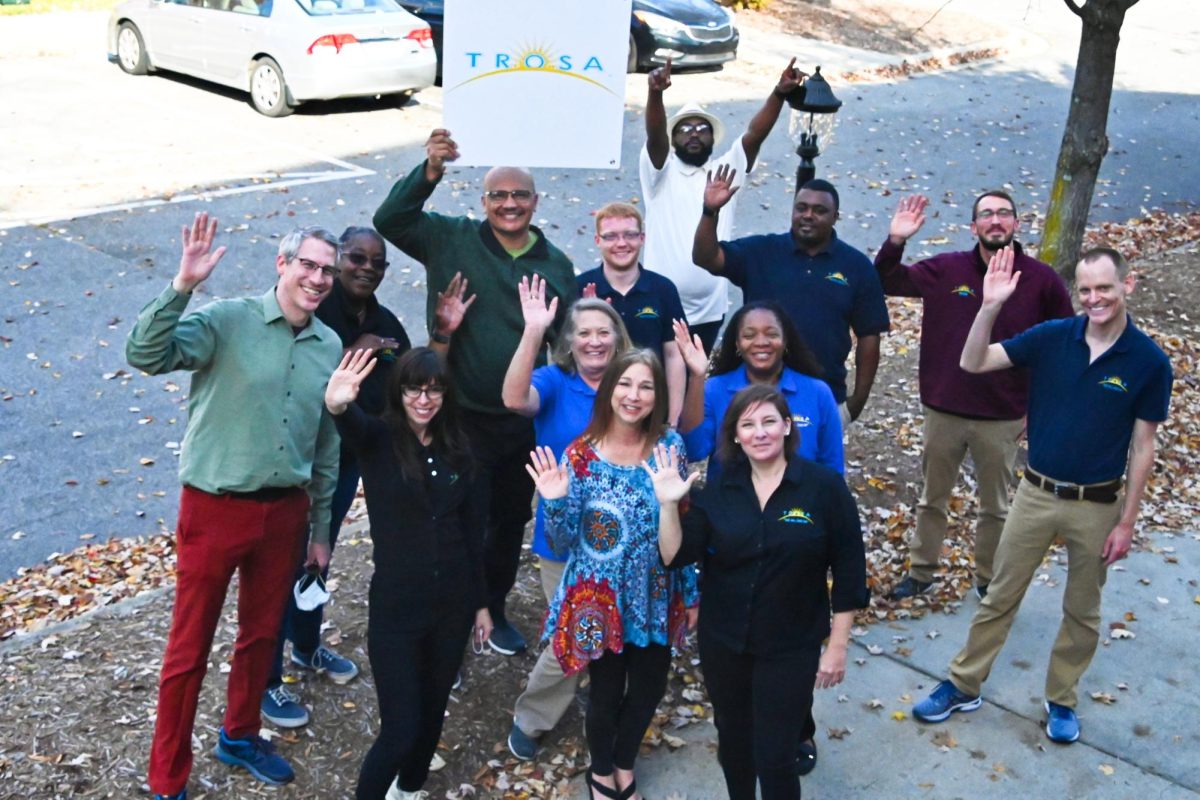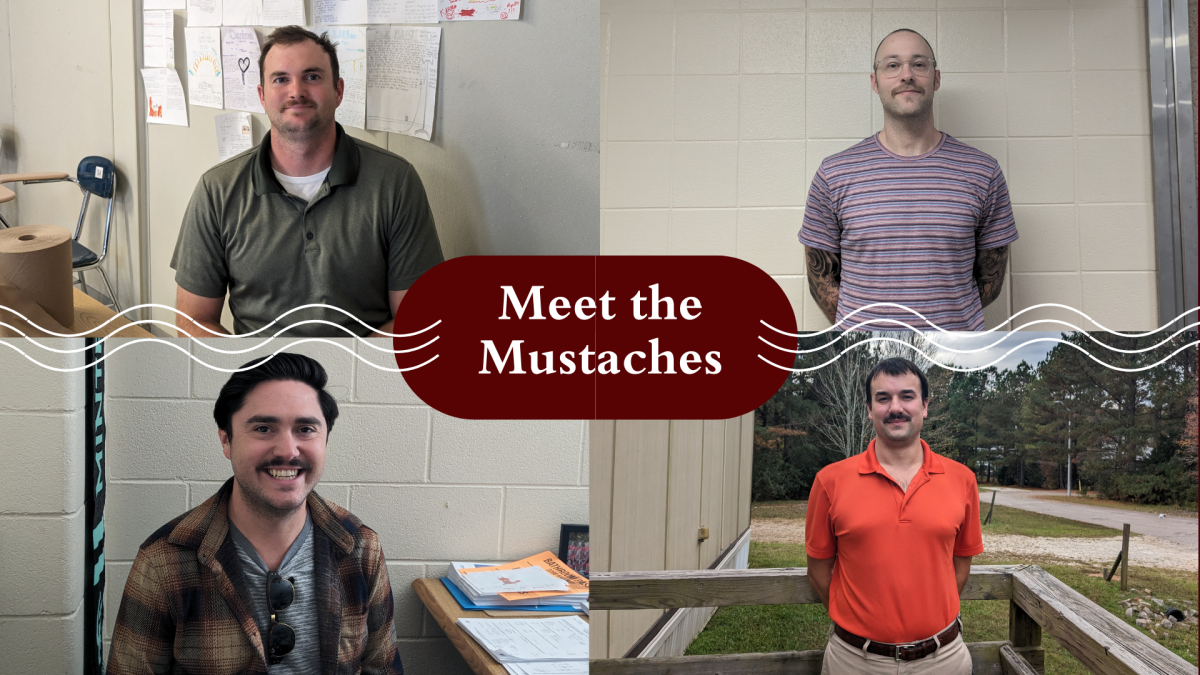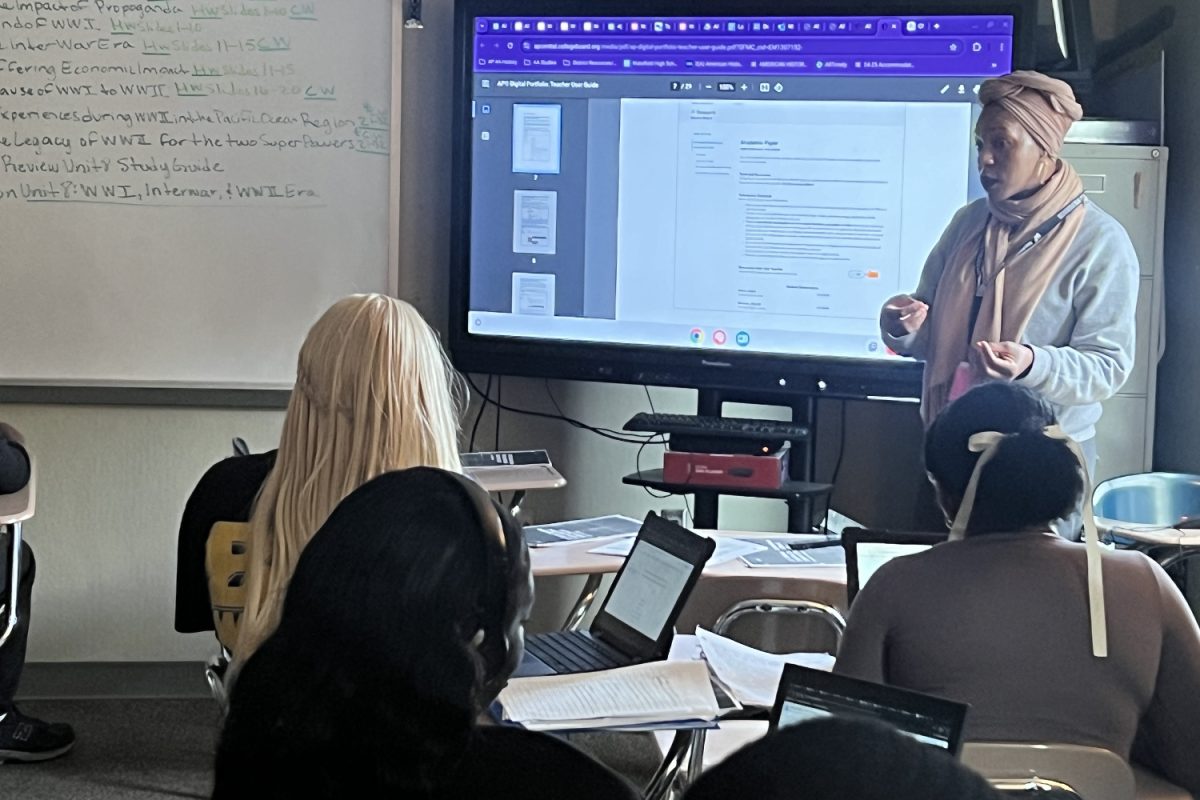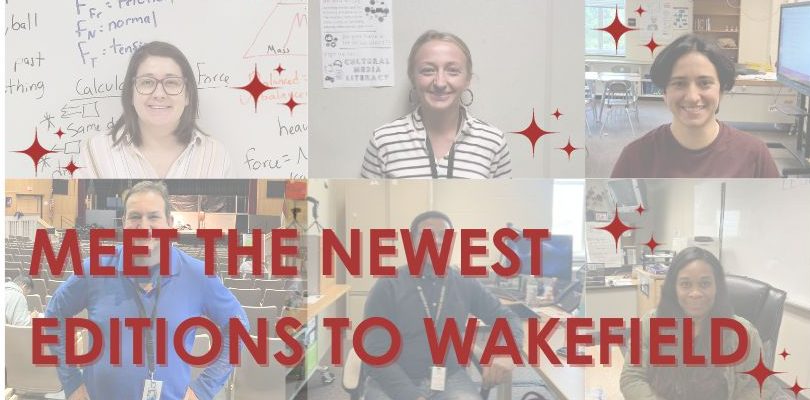
Wakefield welcomes new faces to the front of the classroom
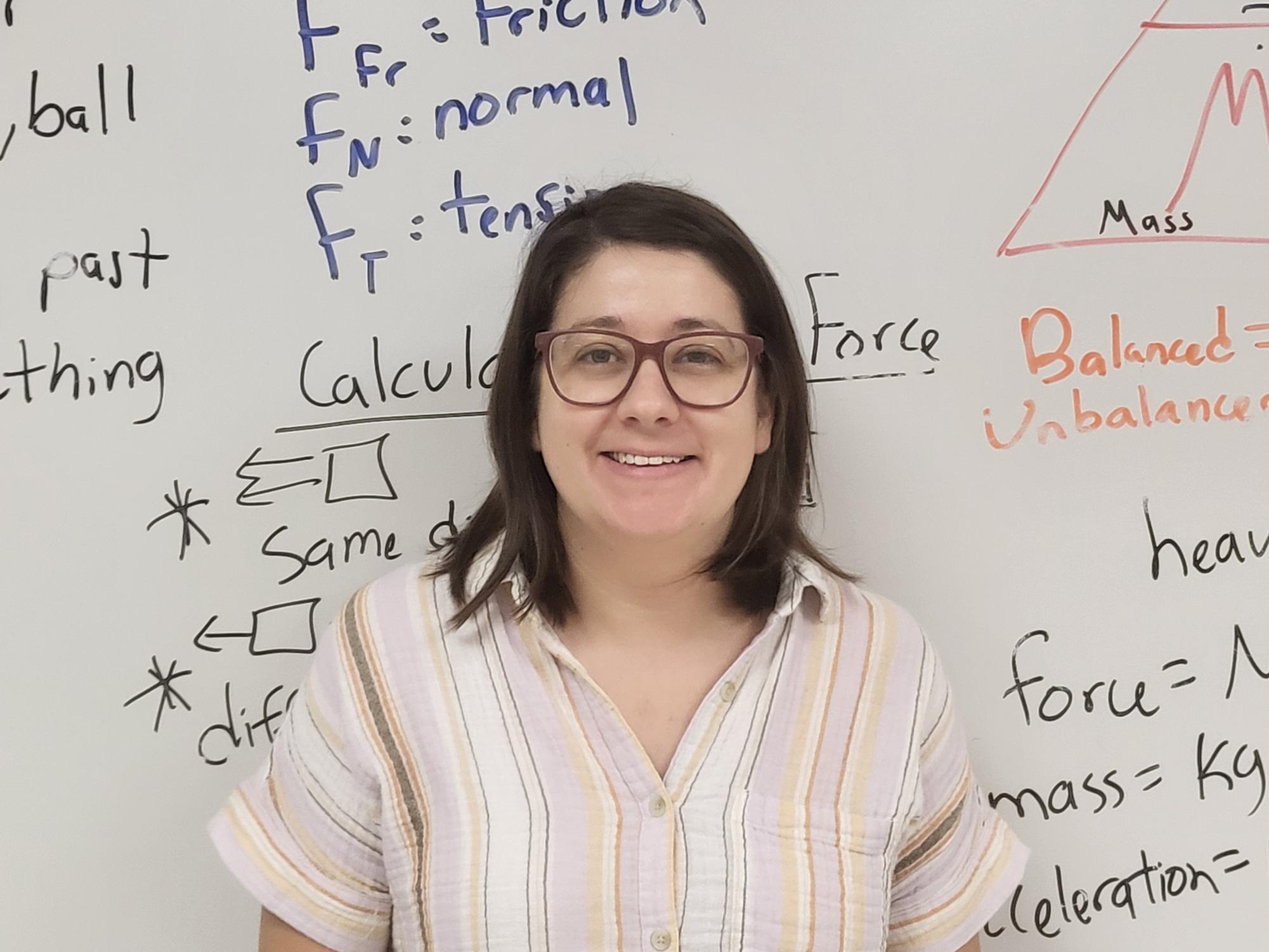
Q: What is your name and a little bit about yourself?
A: My name is Hailey Abene. I teach Physical Science and Earth/Environmental Science this year. I have been teaching for 10 years or so.
Q: Describe your teaching background.
A: I taught sixth, seventh and eighth grade math, science and social studies, so this is my first year coming into high school but I’m excited to come try out high school after being in middle school for a while. I was at Lufkin Middle School, East Cary Middle School and Clayton Middle School.
Q: What inspired you to become a teacher?
A: For education in general, I actually wasn’t an education major. I majored in recreation management. Afterward, I was working at state parks and [did activities] such as field trips for kids [to] teach them about science [occurring around] the park. I really enjoyed that, so I thought I would enjoy teaching in a classroom. Then, while I was figuring out that I wanted to try high school, I liked what Wakefield had to offer.
Q: What are some of your goals for this school year and those to come?
A: My goal for this year is to definitely get used to the high school schedule. I’ve been year-round for the past seven years, so this is definitely a change. I also need to get used to the new concepts and standards I’m teaching. As for the years to come, my goals are to refine those lessons so they can get better and better each year.
Q: What’s your teaching style?
A: I like to do something as a whole group, so we all get the same [information] and then let people either work individually or with a small group to work at [their] own pace.
Q: What challenges do you anticipate as a new teacher?
A: I think just getting used to the curriculum and getting used to high school-aged students because I’m used to dealing with preteens not only because of the age difference but [also] the fact that these kids can drive and have jobs.
Q: Can you share any memorable or impactful teaching experiences you’ve had so far in your career?
A: I think COVID-19 was impactful for all of us. We kind of [had] to learn to go from mainly paper and pencil to having a laptop cart in our class. I really like doing more things digitally.
Q: What advice would you give new educators just starting their time in teaching?
A: I would tell people not to beat yourself up about the small stuff. If you make a mistake, it’s okay, just move on and figure it out for next time because you’re more likely to do better. Also, I would say to just take it one day at a time.
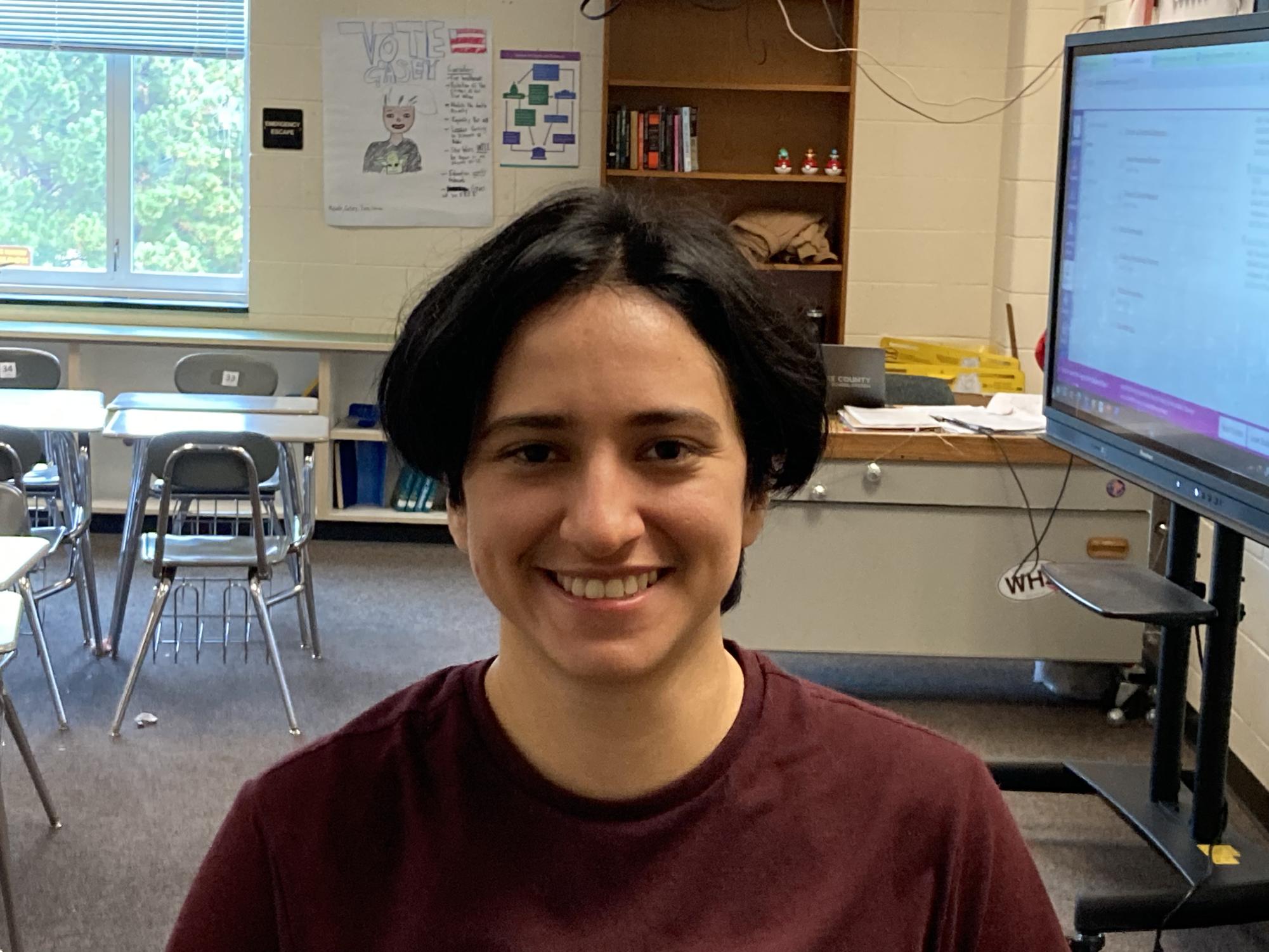
Q: What made you want to teach social studies?
A: I am very passionate about history and having a good well-rounded history education because it’s not only important to know about history but it’s important to know how to analyze history and gain the critical thinking and pattern recognition skills that are ingrained in learning about history.
Q: If you weren’t a teacher, what would you be?
A: I would probably be in grad school right now getting my master’s or my PhD.
Q: What is your favorite subject?
A: History. I would say English is a close second though.
Q: So far, do you have a favorite teaching story?
A: A lot of my students keep this job eventful. I have quite a few favorite teaching stories. Not at all that I can put on the record.
Q: Do you have any hobbies outside of school?
A: I do. I like hiking, kayaking and being outside. I also like watching movies and writing.
Q: Do you have a favorite song and/or band?
A: My favorite band is Tennis and my favorite song of theirs is “Pollen.” My favorite song of all time is “Emotion” by Carly Rae Jepsen.
Q: What do you plan to do when school is out in the summer when school is out?
A: I plan to be in Mexico doing some academic research and visiting family. I’m pretty excited about that one.
Q: How do you integrate technology into your curriculum?
A: I mean, it’s automatically pretty integrated into the curriculum because of the day and age that we live in. Most of their assignments are online through Canvas and we also do a lot of Kahoots and Quizlet Live.
Q: How do you differentiate your teaching methods to accommodate studies with different learning styles and abilities?
A: During lectures, I try to have different modes for students to engage with. I’ll have a visual representation in the form of a Powerpoint and you have an oral presentation in the form of a lecture, by typing down their notes, they are engaging in a kinetic way and things of that nature as well as if a student needs more individualized. Then, we will work together during remediation or PACK time.
Q: How do you facilitate a respectful class discussion when talking about sensitive issues/topics?
A: So far, students have been pretty good at self-regulating in regard to sensitive or controversial issues. There’s been nothing combative or disrespectful, I encourage students to not necessarily shy away from controversial topics when we talk about current events and we do a weekly current event response and ultimately we establish that the basis for the conversations has to be empathy and that’s been pretty successful thus far.
Q: Do you have any advice for students who are taking or want to take your class?
A: My advice would be to take education seriously. This is really not your sole opportunity to have an education. But, it is one of the most prime opportunities you will have in education and if you take that seriously and you have skill and practice in something that you might not have been good at, you will succeed.
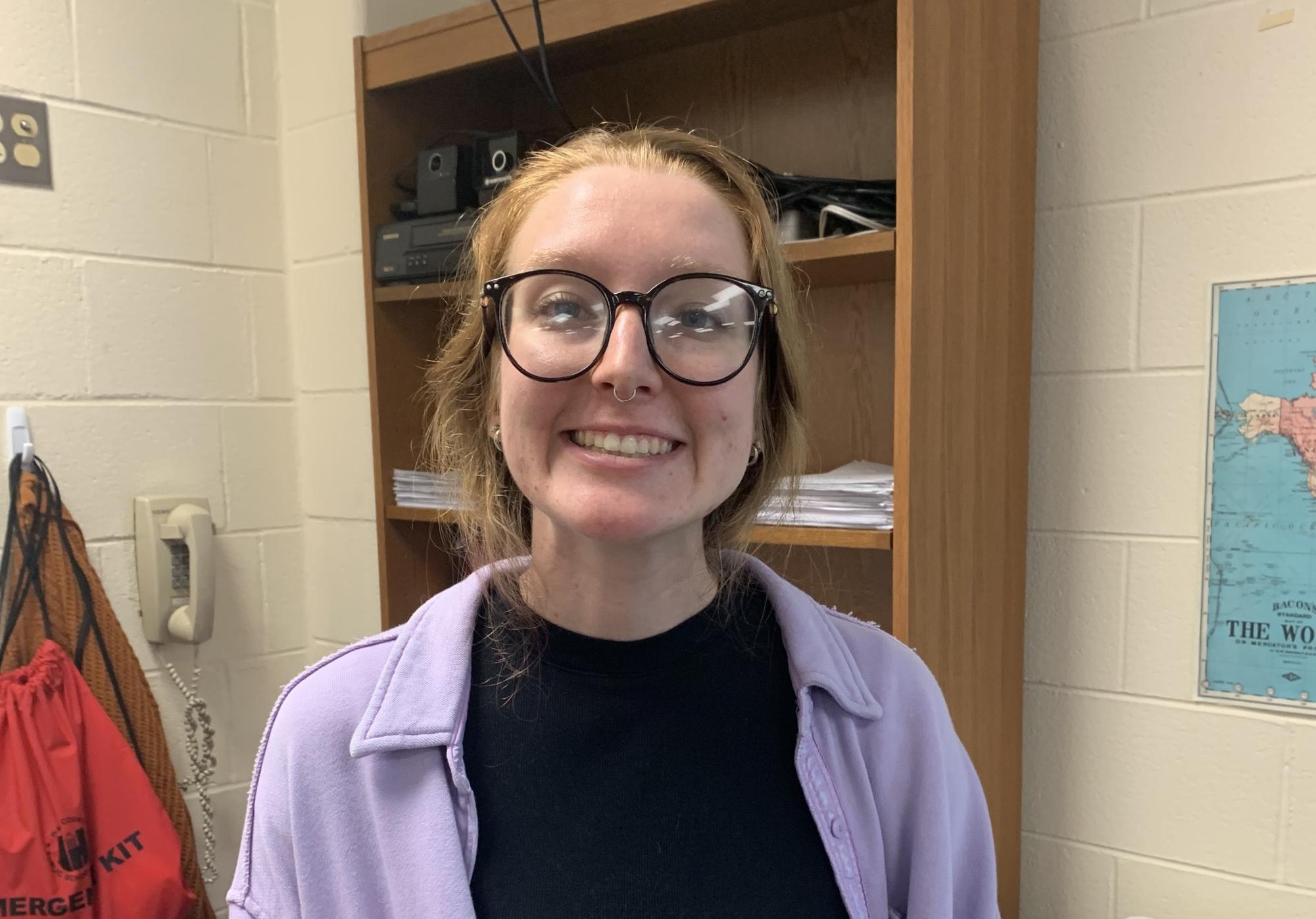
Q: Where did you work before you came to Wakefield?
A: I worked at Neuse River Middle School for about three years before coming here.
Q: Where did you go to college?
A: I went to NC State [University.]
Q: How has your first quarter been so far? Has it been different than you expected?
A: It’s been pretty different in a good way. I’m used to teaching middle school, [and] in middle school everything is chaotic all of the time. But now that I’m at a high school, it’s a lot easier in some ways. I’ll tell the students to do something, and they’ll do it the first time. I love [teaching at a] high school.
Q: What courses will you be teaching at Wakefield this year?
A: This semester I’m only teaching Spanish I, and next semester I’m only teaching Spanish II.
Q: What made you want to teach Spanish?
A: I love Spanish. [I think] it’s the most fun in the entire world. I didn’t study education when I was in college but I studied Spanish. I learned how to teach ESL, and I got a certification. From that place, I [decided] I wanted to teach when I graduated. When I graduated, I applied to every teaching job I could, even though I didn’t feel particularly qualified at the time. Then, I got a Spanish teaching position, and I loved it.
Q: What do you find most fulfilling about teaching?
A: Getting to connect with the kids is really fulfilling because Spanish is important, but I like to help and encourage kids to learn how to love Spanish. That’s the most fulfilling part: seeing kids enjoy what they’re studying.
Q: Is there a particular unit or project that you really enjoy teaching kids about?
A: I like the description unit where we start describing people because kids get a little bit more into that. That’s just generally a bit more fun because it’s more engaging than just basic conversations.
Q: Outside of school, what are your hobbies?
A: I love to rock climb. It’s so fun. I work part-time in a rock climbing gym. I also have a pet rabbit, which isn’t really a hobby, but sometimes she feels like one because I have to take care of her everyday.
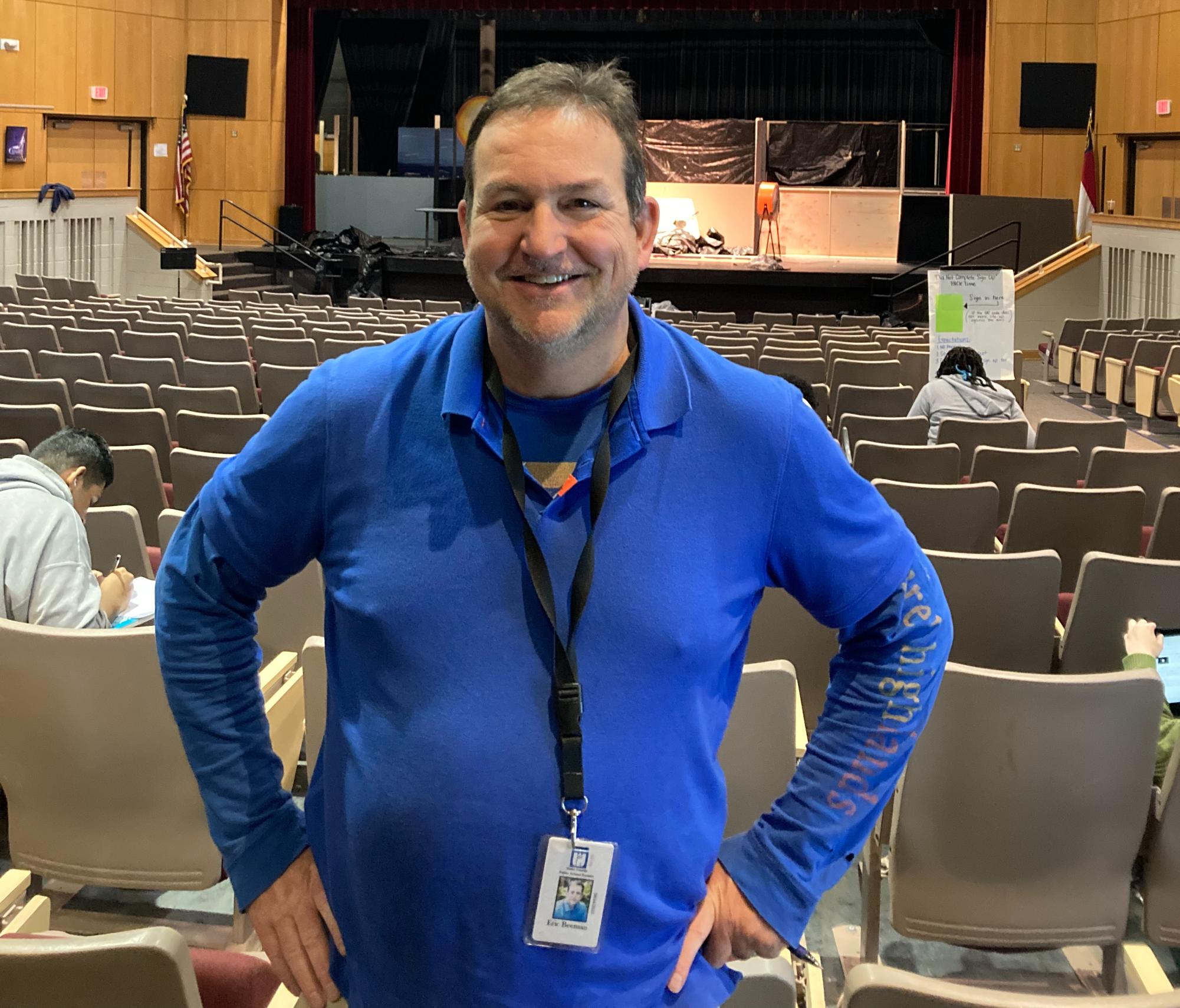
Q: What led you to become a teacher?
A: I kind of stumbled into it. I never really wanted to be a teacher. I was a director in Hollywood for many years and a producer and it turns out that I was teaching acting all along in the productions and I figured that I was pretty good at inspiring people. And so, when the opportunity came about to teach it was just a natural fit for me.
Q: How do you incorporate technology into your curriculum?
A: I use a lot of technology. I don’t like textbooks, textbooks are boring and I know a lot of the teachers here use textbooks but I’m a non-traditional teacher and I didn’t learn that way and I don’t expect my students to learn that way. So, we watch a lot of videos and we work with cameras and video editing and I try to use all that in a very practical way for the students to learn.
Q: How do you create a positive and inclusive environment for your students?
A: That’s tricky. The number one fear that most adults have is public speaking. So, when they come into a theater class, they have a natural tendency to be afraid and to do the assignment. What I try to do is encourage them with positivity and confidence being giving a lot of compliments working on their strengths and really accentuating those strengths. When we talk about their weaknesses, we also give them constructive criticism so that can improve.
Q: Do you plan to participate in or organize any theater-related extracurricular activities or community events involving your students?
A: Yes. We are in the process and writing movies and we hope to be producing them hopefully in quarter two it’s going to be open to the public where plan to have them in the theater where friends and family members can come to watch the work of the students as well as put them on YouTube and on online devices. So, we’re going to get out to the community in a global sense that way.
Q: How do you stay updated with the latest trends and developments when it comes to your field in the arts?
A: That’s what I’m pretty passionate about. I just read and so you’re always on the internet reading articles and watching the news. Like, for example, we just had the WGA (Writers Guild of America) strike and SAG (Screen Actors Guild) is still striking. Just figuring out why are they striking and what their issues are. That helped teach me so I can teach the students. But, the writers were striking about AI and that’s the future of a lot of media. That’s also what’s affecting the SAG as well. You can now have people digitally scanned in. Which removes the need for extras in movies. And, you’re only gonna get paid for that digital scanning once and then never again. And, that doesn’t seem fair to me.
Q: Can you talk about any recent development experiences that influenced your method of teaching?
A: Yeah. By failing. What I try to do is encourage my students to try and to fail I have failed thousands of times but I learn from each mistake and improve on them. But, I continue to try things and I will continue to fail. But, I will continue to get back up and keep trying.
Q: What are your favorite things in the world?
A: My family. They are my muse and they keep me going and they make it fun to look forward to coming home every day. And, they give me a reason to come to work every day and I love movies and tv shows.
Q: What are you looking forward to here at Wakefield?
A: I look forward to seeing a lot of student growth and it inspires me when I see it because it tells me that I am doing a pretty good job.
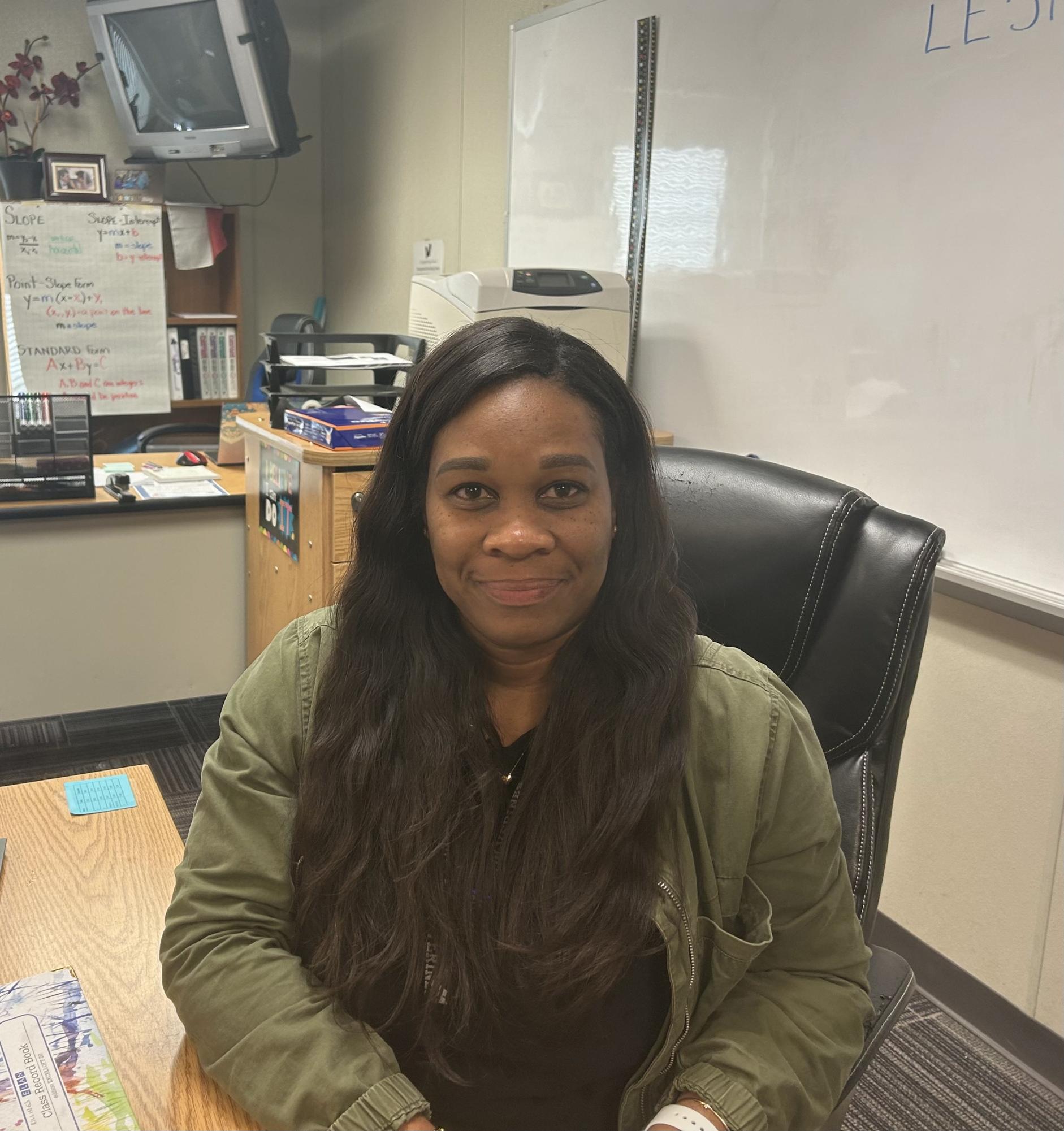
Q: What subject do you teach?
A: Sociology honors and world history.
Q: What college did you attend?
A: University of the West Indies Mona.
Q: How do you plan to create a positive learning environment in your classroom?
A: Creating a positive learning environment in my classroom will include encouraging an atmosphere of respect and inclusivity, ensuring to positively reinforce positive behaviors and building supportive relationships with a growth mindset.
Q: What inspired you to become a teacher?
A: My passion for education and my desire to make a positive impact on young minds.
Q: How many years have you been teaching?
A: This is now my seventeenth year teaching.
Q: Do you think your past self would be surprised at where you are now?
A: I believe my past self would be proud of where I am now as a teacher. While the journey has had its challenges, being able to inspire, guide my students and make a positive impact has been my driving force.
Q: What is your favorite part of teaching?
A: My favorite part of teaching is my interactions with my students in the classroom and taking them through the course successfully. When they succeed, I succeed.
Q: What do you think makes your teaching style unique?
A: My background: since I am Jamaican/Caribbean, I foster a supportive and inclusive classroom environment to meet the needs of students.
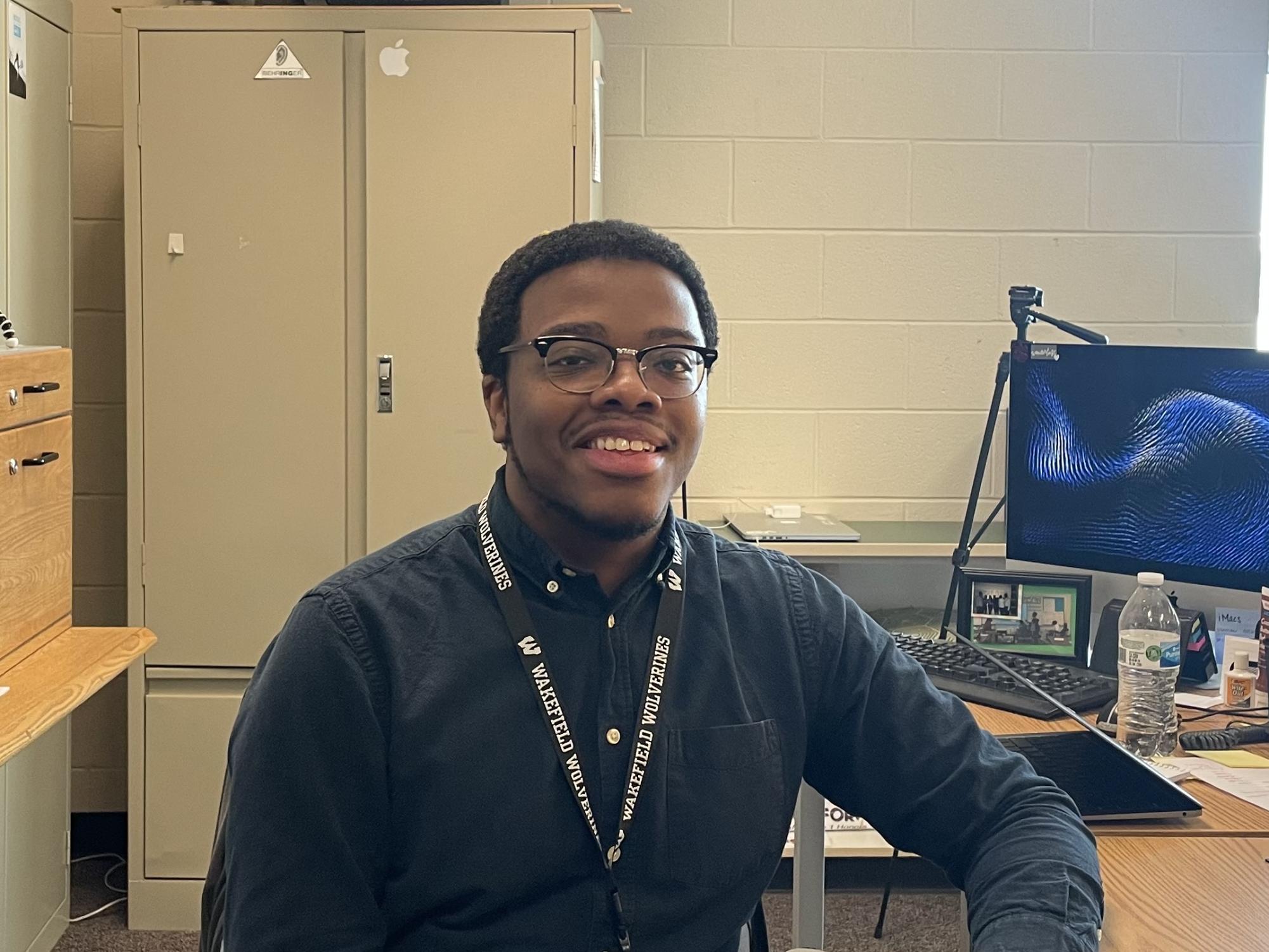
Q: What is your name, and what do you teach?
A: My name is Mr. Boyd, and I teach visual and video design in Adobe.
Q: What made you want to start teaching this? A: I went to college for Journalism and Mass communications. I got involved in working with cameras and working behind the scenes in video production. I did posters, and I loved it. I was like, “Since I love this, why not just teach other kids about it?” This is how I became interested in teaching.
Q: What are some of your hobbies?
A: I love photography, video work and cooking—I [also] like to travel.
Q: What is one thing you have learned in the past year that has significantly impacted you?
A: Believe in your work. There were a lot of times for me that I could do certain things, but I didn’t feel like I was good enough. Talking to other people, getting other people’s ideas and opinions, they always [thought], “Wow, this is great work.” I didn’t believe it, but everything became much easier for me when I started to believe it.
Q: What do you like about Wakefield the most so far?
A: I like the students so far. The students are very diverse: you have your quiet ones, you have the ones who like to talk [and] you have the people who are very chill. You just get a variety of everybod

Q: How many years have you been teaching?
A: This is my first year teaching and I have been here for about five weeks now. So, I started two weeks into the school year and I’m very new.
Q: What inspired you to become a Special Education teacher?
A: I did a lot of volunteer work in high school, I went to East Wake High School in Wendell, The volunteer work that I did was mostly in the special ed classroom and helping with cleaning and lunch. I also have a 31 year old brother who is autistic and he is low functioning. But, it’s fulfilling to me to help students reach their full potential, I also have a friend who went here and he spoke very highly of the school.
Q: How do you individualize instruction to meet the needs of your students with disabilities?
A: I work one on one with students and I work with a variety of different subjects because I am always on the go between two different students but one of them I actually do a lot of one on one work with. So, if he needs to work in a different environment we can do that. It’s mostly about encouragement and I just need to nurture their interests. But, my work is already individualized.
Q: How have you been liking it here so far?
A: I love it here honestly. But, my first day was kind of weird because my first day was on a Wednesday and I was thinking, “when am I going to be here for my first day? Where do I need to go? What do I have to do?” Because, I had only been inside the building once and I was in the media center for most of the day. So, I was kind of nervous but everybody was so welcoming and any questions I had, I wasn’t afraid to ask anyone because everyone was just happy to help. And, I’m thankful for all of the staff members here, I’ve been catching on pretty quickly and they’ve made me feel very at home. So, I’ve only been here for a short while but it feels like I’ve been here for years.
Q: How do you work with the other teachers, therapists and parents to with the individual students that you work with?
A: Communication is key. So, big or small, you have to talk about everything and update everyone on everything. So, I’m always on the go and running around but most of the time, I’ll run into people that I need to speak with usually. Primarily, it is in person that I will find who I need to meet with if not I have some of the teachers phone numbers and their emails. If there’s anything urgent, we will shoot each other a text.
Q: What advice would you give to someone pursuing a career in being a special education teacher?
A: I would say to make sure that you have the personality to work with children and I think that’s very important. What I mean by that is that you have to have certain characteristics like patience and confidence in yourself to not be scared to put yourself out there because sometimes it takes a student seeing you being fearless for them to feel that same way. Sadly, I’ve had a lot of teachers in the past who didn’t seem like they wanted to be teachers. They seemed like they didn’t want to be teachers and that is disheartening and I used to look at teaching and think it was such a horrible job because they seemed so miserable and it seems like they don’t want to be here. But, coming here, I realized that it’s not that hard of a job. It’s a very hard job but you have to have the mentality to stick it out. Another thing that motivates me here are the children. So, you have to have a good reason to want to work in education other than money.
Q: Is there anything else you would like to say?
A: I just want to thank everyone for being so welcoming towards me and thank you to everyone stopping me in the hallways all the time thinking I’m a student. But, it seems like everyone else is getting used to seeing me and seeing my face and that they’re warming up to me being here.
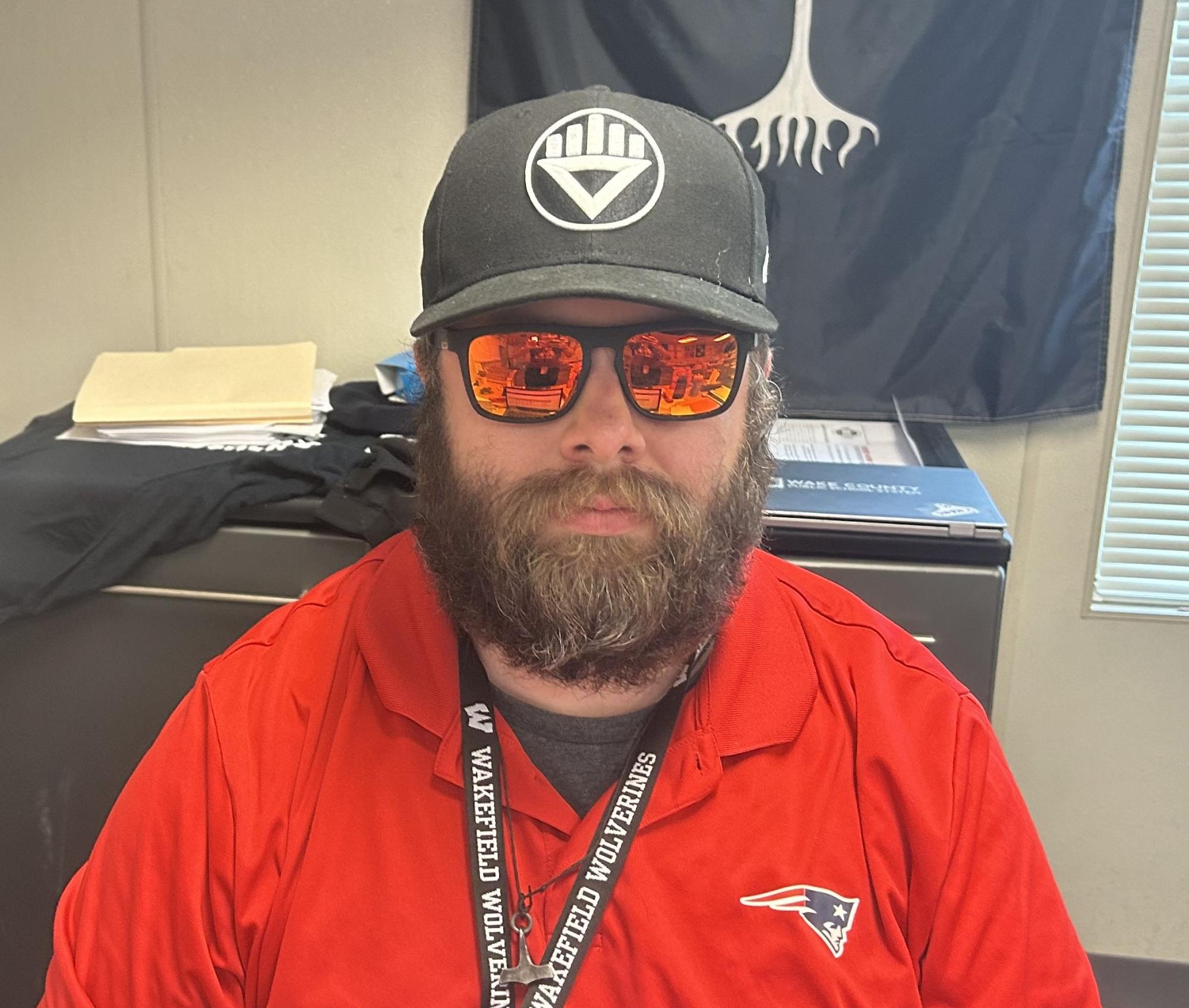
Q: What subject do you teach?
A: World history and honors psychology.
Q: What college did you attend?
A: North Carolina State [University].
Q: How do you plan to create a positive learning environment in your classroom?
A: Through proper application of cognitive psychology principles, [this] would produce sufficient success for students in terms of actually learning the material, [and] they will come to enjoy it. I also have a decent sense of humor; I’m pretty laid back and not very judgmental.
Q: What inspired you to become a teacher?
A: I really like history, and there is no other job where I can have a captive audience to talk about it too—also, my ninth grade English teacher [inspired me to become a teacher].
Q: How many years have you been teaching?
A: This is my tenth year [teaching].
Q: Do you think your past self would be surprised at where you are now?
A: No, not at all. I have been trying to teach people since I was pretty young, whether they wanted to listen or not.
Q: What is your favorite part of teaching?
A: Being able to share my excitement and fascination with the subject material.
Q: What do you think makes your teaching style unique?
A: I work really hard to incorporate the psychology of learning into every class.
Q: What hobbies do you have outside of school?
A: I do a fair amount of hiking, reading and playing strategy games.
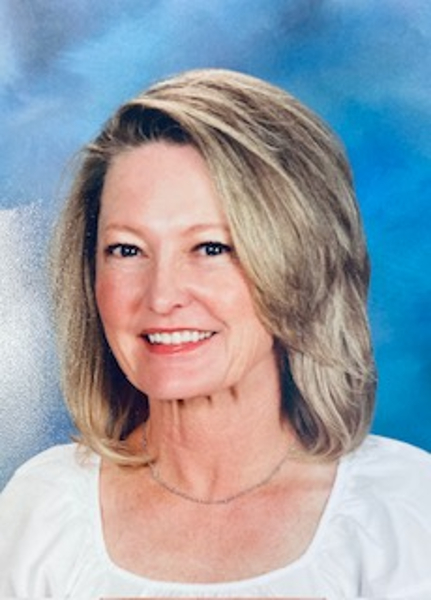
Q: What do you teach?
A: This semester, I teach business essentials and career management.
Q: What grades do you teach?
A: [I teach] nine through twelfth grade.
Q: What are business essentials and career management?
A: Career management helps plan what kind of career you would like to do in the future, and Business Essentials [introduces] beginning-level information before you deal with business management.
Q: How did teaching become your passion?
A: Well, I enjoy helping students, I want everybody to do well in school and I hope my classes give them an idea of something they want to do when they graduate.
Q: Is there a significant moment during school that made you want to become a teacher?
A: No, because I decided I wanted to become a teacher after I worked in the computer industry.
Q: Where did you get your degree?
A: I graduated from East Carolina University.
Q: What would you do if you didn’t teach?
A: If I didn’t teach, I would take care of the animals at Saving Grace full-time.
Q: Where did you teach in the past?
A: For my last 4 years, I have been at South East Raleigh Magnet High School and before that, I was at JH Rose High School in Pitt County.
Q: What goals do you have for your students?
A: A goal I have for my career management students is to achieve the certification that we have in our class.
Q: How have you been liking Wakefield so far?
A: Oh, I love it here. Everybody’s been so friendly, kind, and welcoming.
Q: How would you describe your style of teaching?
A: My teaching style is definitely by the book. I go by the curriculum and let the students loose to do their assignments on their own, so they can learn through trial and error.
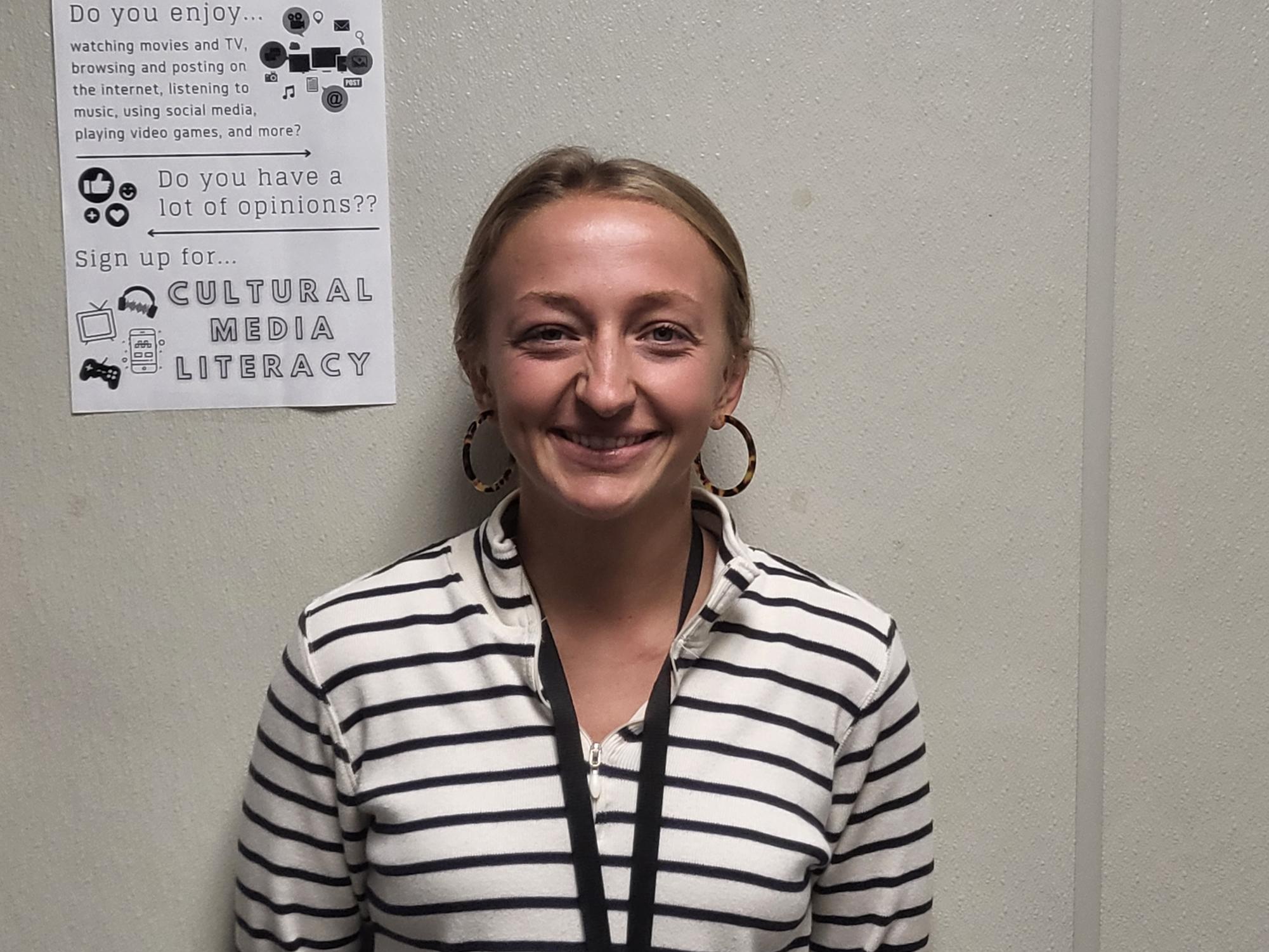
Q: What is your name and a little bit about yourself?
A: I’m Caroline Jones. I teach two periods of ninth-grade English and the Cultural Media Literacy elective. A little bit about me would be that I went to NC State University [and] finished up there last year [with an] undergraduate in English and my master’s in teaching.
Q: Describe your teaching background.
A: This is my first year teaching ever! It’s really exciting.
Q: What inspired you to become a teacher?
A: I took an English class in college called Women in Literature. It was the most fun class ever. I feel like I also learned a bunch about myself through what I read [during that class]. Through my studies of the English language in general, I feel like I really solidified my belief that words are powerful.
Q: What are some of your goals for this school year and those to come?
A: For this school year, I surprisingly have not been stressed out so I’d love to keep that up. I don’t know my goals for the future; I’m taking it one step at a time.
Q: What’s your teaching style?
A: Discussion-based learning, probably. If I can come up with a really good question that covers the content and gives the students a place to speak, I’ve won.
Q: What challenges do you anticipate as a new teacher?
A: I definitely need to study the staff directory like I’m going to be tested on it. Lots of times I’ll ask, “Who do I contact about blah-blah-blah?” and they’ll respond, “Oh, this person.” Of course, I don’t really know who that person is. But in reality, and I don’t mean to be all sunshine and rainbows, [but] everything has been good so far.
Q: What advice would you give new educators just starting their teaching career?
A: I’ve gotten this advice a lot, “your to-do list is never done, so know when to pack it up.” That’s what I’ve been doing, and it’s been really successful.
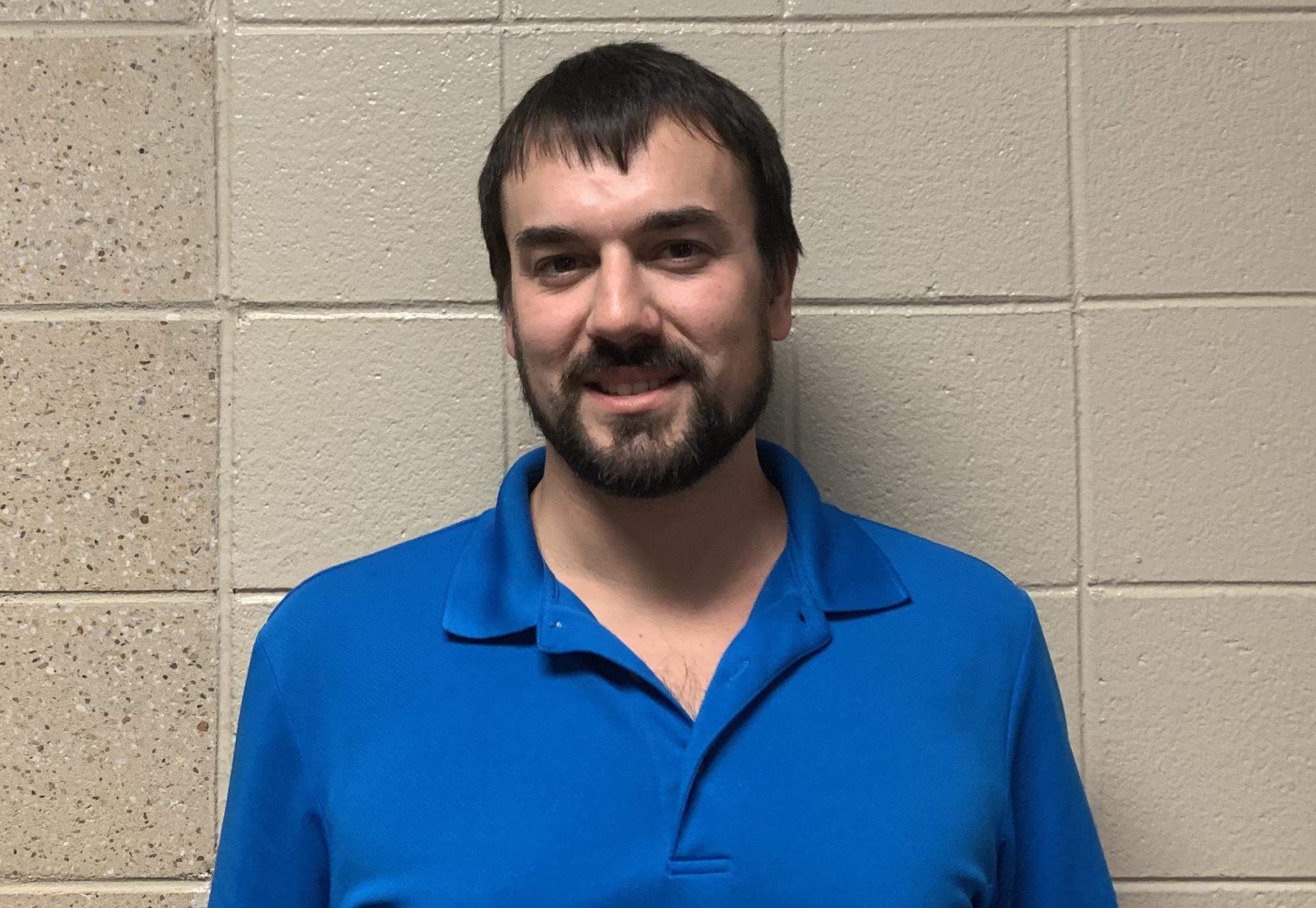
Q: What is your position at Wakefield?
A: Social studies teacher. Right now, I am teaching AP Psychology and AP Macroeconomics, and next semester I will also teach personal finance.
Q: How long have you been working in the education system?
A: As a full-time teacher, three years. All things included, about five and a half years.
Q: What led you to become a teacher?
A: Both my parents were teachers, so originally, I thought I would never do that. I went to school for political science, then realized I cared more for the history than the politics side of it, so I stuck with history and got into social studies.
Q: What are you looking forward to at Wakefield?
A: Pack-time. I have hardcore history here during pack-time where we are going to listen to a couple of podcasts and focus on World War I and World War II. I am excited about that because I can take that in whatever direction I want.
Q: What do you enjoy doing outside of school?
A: Walking my dogs, playing music and reading historical non-fiction.
Q: How do you hope to impact your students?
A: I want to make sure they do well on their AP national exam, understand the material and, most importantly, I want to make sure they have fun.
Q: What are you doing to get involved in the Wakefield community?
A: Right now I am still new to the area, so I am trying to get a feel for things, but I am trying to attend more sporting events and looking to get involved in clubs, and who knows, maybe coaching in the future.
Q: What are your goals for this year?
A: Make it all the way through, prepare my students and establish myself here because I see myself here for the long run.
Q: Do you have anything else to add?
A: I have a mixtape coming out, so be on the lookout for that.
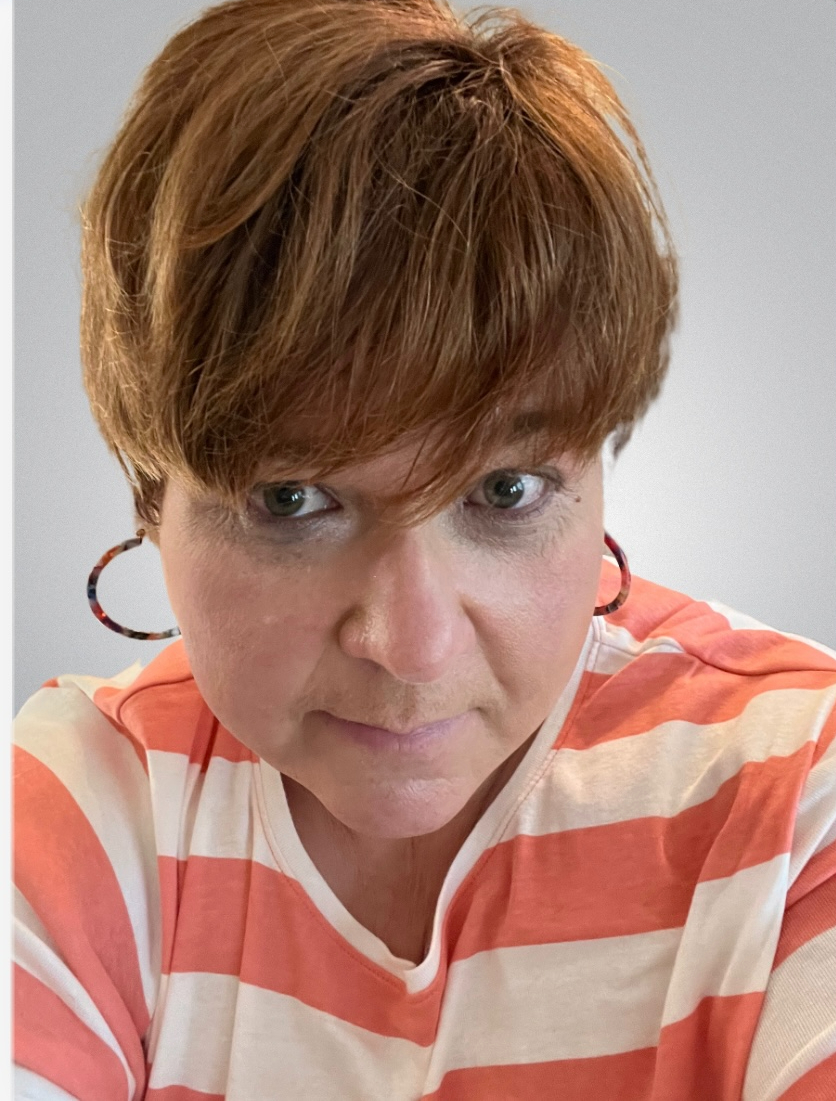
Q: What subject do you teach?
A: I’m in the Exceptional Children (EC) department and teach Curriculum Assistance and [have previously] co-taught math.
Q: Why did you choose this subject?
A: I was an Instructional Assistant last year and saw how supportive everyone in the EC department was with students and as a team.
Q: What do you enjoy doing outside of school?
A: Since I’m changing careers, I’m in an educator prep program. This year, a lot of my out-of-school time is dedicated to coursework and studying. Other than that, I enjoy spending time with my sons, my sister and brother-in-law, going to shows at DPAC, Durham Bulls games and other fun local events.
Q: Where have you previously worked?
A: My background is in psychology, and I did my undergraduate and graduate programs at New York University. I did clinical case management and worked with teen parents, their families, youth aging out of foster care and youth in foster care who had visitation with their parents.
Q: What are you looking forward to at Wakefield?
A: I’m looking forward to getting to know more students. I like the high school age group; [they’re] mature enough to have great insights and thoughts on big topics and young enough to be fun and full of surprises.
Q: How do you hope to impact your students?
A: I hope my students know I care. I try to get to know them as individual people and hope I’m doing a good job reflecting that back to them.
Q: What are your goals for this year?
A: My goal for this year is to make it through. I don’t mean that in a negative way. I’m learning so much as a brand-new teacher and in my ed prep program, but it’s a lot. There’s an exciting aspect to that, but feeling more experienced next year is something I’m looking forward to.
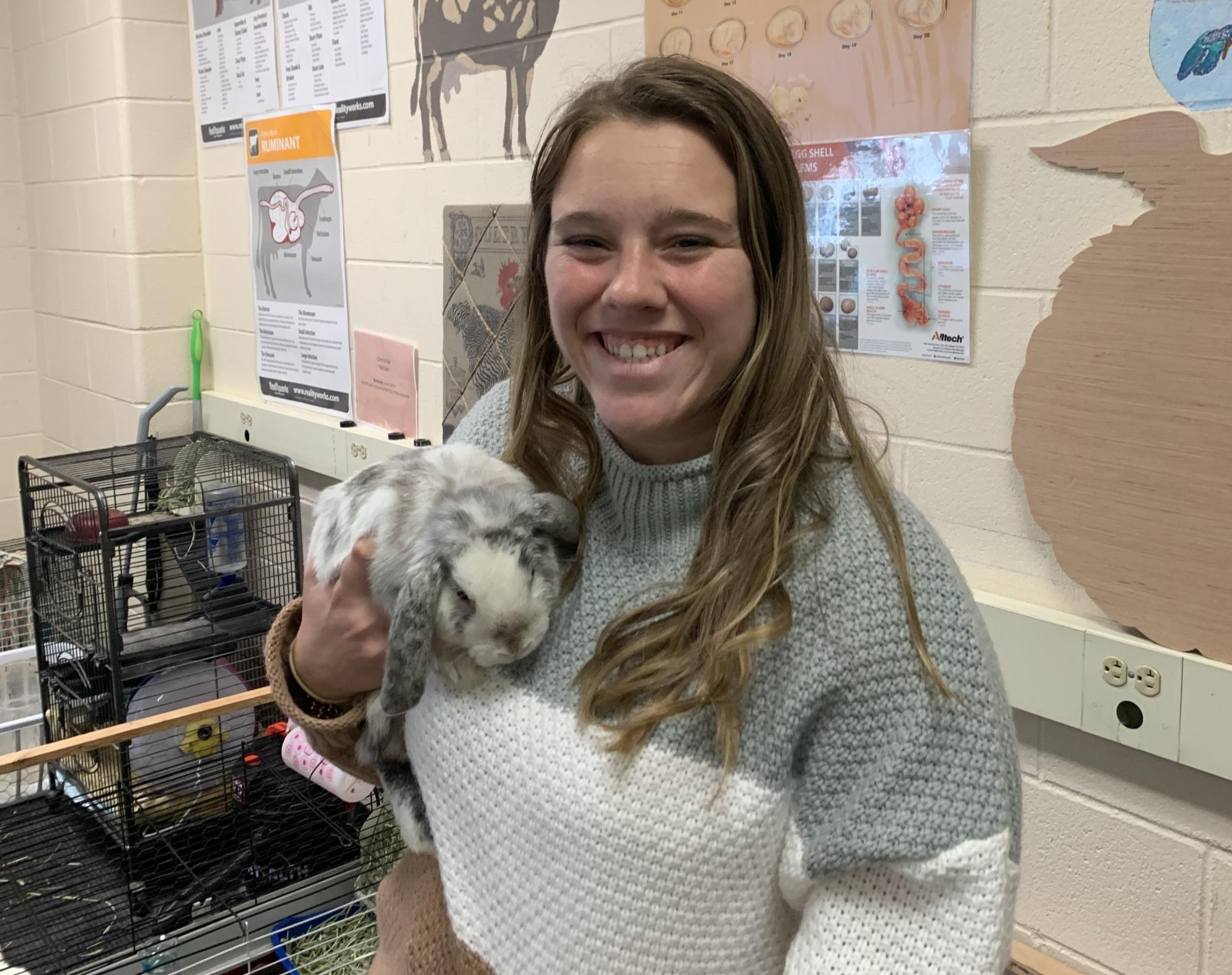
Q: Where did you work before you came to Wakefield?
A: Before I came to Wakefield, I worked on a few different farms. I worked on a dairy farm in Rowan County. After that, I worked on another farm at NC State [University].
Q: What courses will you be teaching at Wakefield this year?
A: I’m teaching Animal Science I [all year,] and then this semester [I’m also teaching] one section of Animal Science II: Companion Animals.
Q: What part of animal science made you interested in teaching about it?
A: I always liked animals growing up. I thought I was going to be a vet, but after working on a dairy farm, I realized that I really loved working with livestock. [While] going to NC State [University], I learned about all kinds of animals, [and] got involved on the livestock side with sheep and beef cattle.
Q: How has your first quarter been so far?
A: It’s been good. I really enjoy all of my students. We’ve been on a few field trips to look at some production farms, which has been fun.
Q: Is there a particular unit or project that you really enjoy teaching kids about?
A: One of my favorite things is rotational grazing. In rotational grazing, different livestock species [graze] on the same piece of land, [and] it’s a more efficient system. We have three different pens, [and] our sheep rotate between pens. The rye grass that we’re trying to grow in one of the pens is a cover crop, so that’s something else that I enjoy. That touches on the sustainable side, which is what Ms. McLamb teaches.
Q: What do you find most fulfilling about teaching?
A: There have been a few students that came to this class and at first weren’t really into it, but I’ve slowly seen them break out of their shells and learn something new. I just like to see when a student’s face lights up [when they realize], “What? That’s how that works.”
Q: Outside of school, what are your hobbies?
A: I really enjoy being outside. It’s hunting season now, so I like to hunt. I don’t have a dog, but my roommate has a few dogs, and I like playing with them.
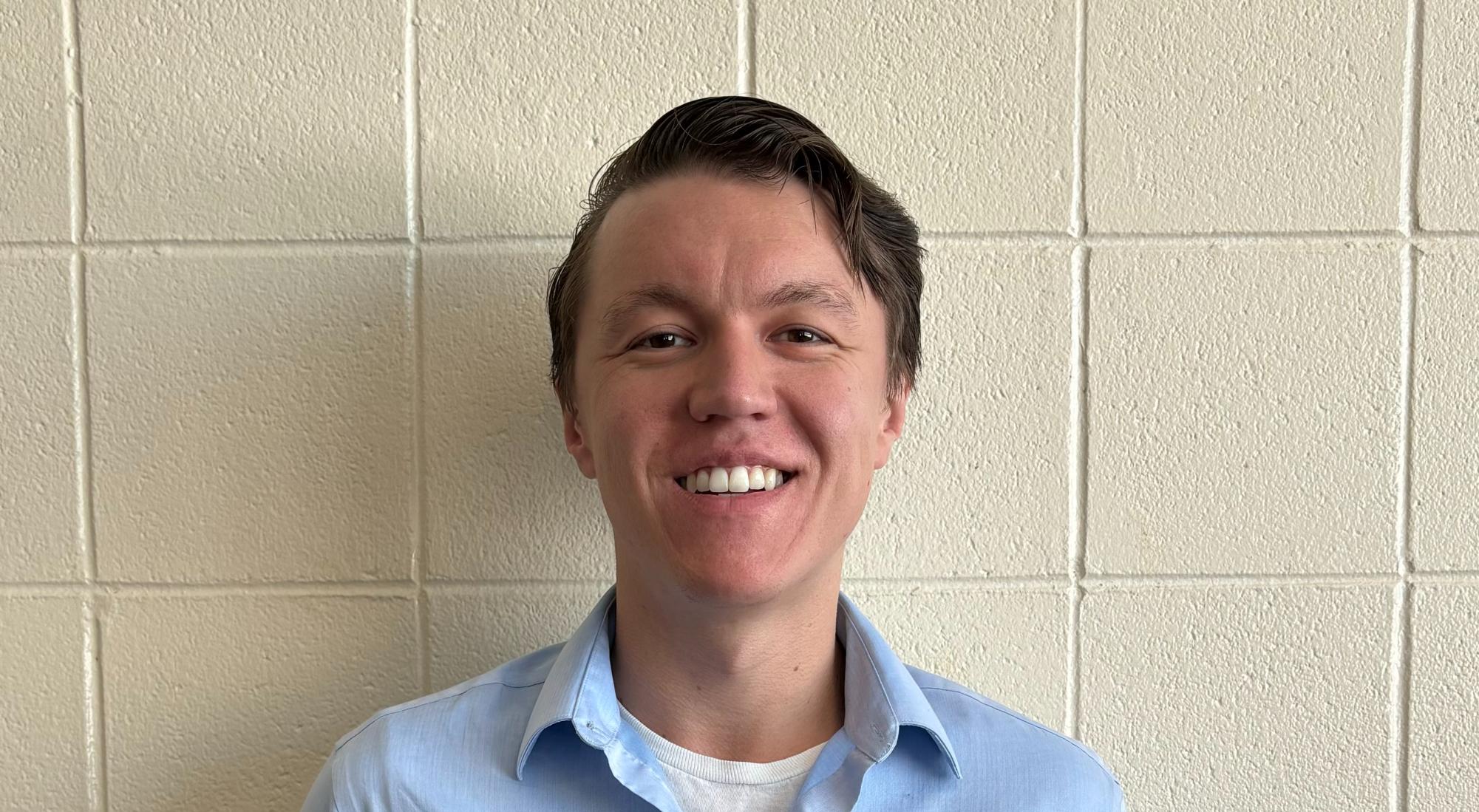
Q: What do you teach?
A: Right now, I’m teaching English 1, and next semester I’m starting to teach English 1 and English 3.
Q: What grades do you teach?
A: [This semester I]teach freshmen, but next semester I will be teaching juniors.
Q: How did teaching become your passion?
A: I picked it up in college. Studying the subject of English I realized I really liked breaking it down and making it more accessible. It’s all about teaching reading and writing and [having] others around me to share my passion for literature.
Q: Is there a significant moment during school that made you want to become a teacher?
A: No, I think I knew going in that I was probably coming out that way. My family is mostly teachers, so my mom and sister both teach in the county. So I was already leaning that way and I remember volunteering. I worked for this [program] called the “Grandparent Support Network” in Wilmington, which helped Grandparents raise their grandchildren by themselves and I did tutoring work with them once or twice a week. It kind of helped point me in the right direction.
Q: What college did you get your degree at??
A: I went to UNCW for my undergraduate degree and NC State to get my graduate degree.
Q: If you weren’t a teacher, what would you be?
A: I remember in college, one of my side jobs was playing music once or twice a week: I’d go to this daycare center for adults with impairment or disabilities and play music for them. I don’t know if I could exactly make a career out of it, but I enjoyed that a lot.
Q: Where have you taught previously?
A: I was an assistant in a preschool class at Sycamore Creek Elementary School.
Q: What goals do you have for your students?
A: For my students, I’d love to them come out of their shells a bit, especially the freshmen. I’d like to see them learn how to freely and openly contribute in class without necessarily having to raise their hand. Basically, make the classroom a collaborative learning space in which I’m a participant in guiding and not necessarily leading.
Q: How do you like Wakefield so far?
A: It’s been great, I really can’t complain about anything. Everyone here has been so supportive; it is a lot to start teaching. There’s a lot of different things you have to learn and you have to learn them along the way, so there’s not really any pause to pick it up. You’re learning it while you’re practicing each day and everyone’s been so gentle and understanding about that.
Q: How would you describe your style of teaching?
A: I really try to guide the students toward leading their own work, which keeps things very open. I leave a lot of room for group work and student engagement, and I try to make sure there is never any missing work. Anything they do is either writing or a project for a grade. Sometimes they are doing pre-writing for grades and assignments. It is always building towards something.


